Discover Your Roots
SIGN UPDiscover Your Roots
SIGN UPKonstantin is a male name of Russian origin, derived from the Latin name Constantinus (Constantine), meaning "Constant" or "Everlasting." It holds significance in Christian history, referring to the memory of the Roman emperor Constantine the Great. The name is prevalent in various European cultures and has several variations such as Konstantinas in Lithuanian, Konstantīns in Latvian, and Constantin in Romanian. Notable individuals with the name include Konstantin Tsiolkovsky, a Russian and Soviet rocket scientist, and Konstantin Stanislavsky, a renowned Russian actor and theater director. In literature, Konstantin Levin appears as a fictional character in Leo Tolstoy's Anna Karenina. Additionally, the name has been used by several historical figures, politicians, and athletes. With its historical and cultural significance, Konstantin embodies the traits of steadfastness and endurance.
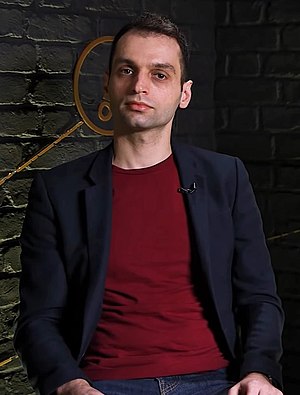
Konstantin Vadimovich Kisin, born on December 25, 1982, is a British–Russian satirist, author, translator, and pundit. He is known as the co-host of the Triggernometry podcast alongside Francis Foster and has written for various publications such as Quillette, The Spectator, The Daily Telegraph, and Standpoint. Kisin has also made appearances on BBC's Question Time and has been interviewed on TV media like BBC, Sky News, and GB News. His areas of expertise include tech censorship, comedy, and culture war. Kisin was born in Moscow, grew up in the USSR, and later moved to the United Kingdom at the age of 11. He attended Clifton College boarding school and Edinburgh University, although he did not complete his degree. Kisin has worked as a translator and interpreter and co-hosts the Triggernometry podcast. His stand-up comedy show, Orwell That Ends Well, received mixed reviews at the Edinburgh Festival Fringe in 2019. Kisin has been involved in political and punditry activities, including speaking at the Oxford Union and the Alliance for Responsible Citizenship. He was named the 46th most influential right-wing figure in British politics by the New Statesman in September 2023.
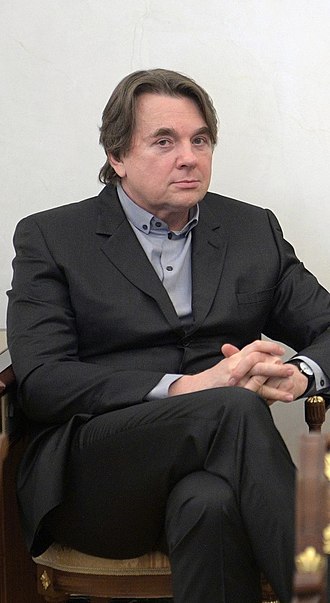
Konstantin Lvovich Ernst, born on February 6, 1961, is a prominent Russian media manager, producer, and TV host, currently serving as the CEO of Channel One Russia. Ernst's upbringing in Leningrad, where his father held a prestigious position, laid the foundation for his academic pursuits. He graduated from the Leningrad State University with a degree in Biology and Soil in 1983. Ernst's career in the media industry began with his role in Vzglyad, a television program, where he honed his skills as an interviewer, scriptwriter, and director. His creativity and vision led to the creation of 'Matador,' a show focused on culture and creative individuals, which premiered in 1990. Ernst's contributions to ORT, where he served as an executive producer and later as CEO, were instrumental in shaping the channel's direction. His tenure as CEO of ORT saw significant changes, including the channel's rebranding to its historical name, Channel One. Ernst's leadership was characterized by a commitment to upholding the channel's independence and public television status. His strategic decisions and resolve to eliminate external influences cemented his reputation as a formidable figure in the media landscape.
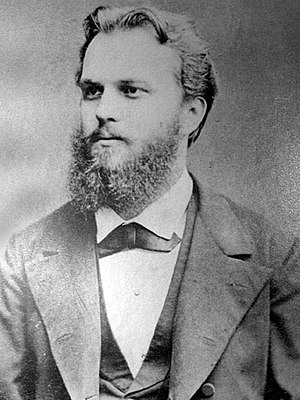
Konstantin Josef Jireček (24 July 1854 – 10 January 1918) was a prominent Austro-Hungarian Czech historian, politician, diplomat, and Slavist who made significant contributions to Balkan and Byzantine studies. Born into a family deeply involved in Slavistics, he was raised in Vienna and developed a keen interest in foreign languages during his education. Jireček's scholarly pursuits led him to publish extensively on Bulgarian and Serbian history, with notable works including "History of the Bulgarians" and "History of Serbs, The Principality of Bulgaria". He played a pivotal role in the establishment of a modern educational system and social change in Bulgaria after the re-establishment of the Bulgarian state following the Russo-Turkish War. Jireček also served as a minister in the government of the Principality of Bulgaria and was appointed director of the National Library in Sofia. His influence extended to academia, as he taught universal history at the Charles University in Prague and later became a professor of Slavic philology at the University of Vienna until his passing in 1918. Jireček's extensive body of work and dedication to Balkanology and Byzantine Studies have left a lasting impact on the understanding of South Slavic history and literature.
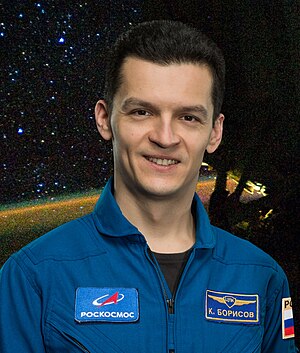
Konstantin Sergeyevich Borisov, born on August 14, 1984, in Smolensk, is a Russian cosmonaut known for his remarkable achievements in space exploration. He played a pivotal role as a flight engineer on Expedition 69/70 to the International Space Station during the SpaceX Crew-7 mission, which launched on August 26, 2023. Borisov's educational background is equally impressive, having earned a Bachelor of Economics from the Plekhanov Russian University of Economics and a Master of Science in "Operations Research and Systems Analysis" from the University of Warwick, Coventry, UK. Additionally, he completed his Master Program in Life Support Systems for Aircraft at the Moscow Aviation Institute in June 2018. Selected as a cosmonaut in 2018, Borisov, alongside seven others, successfully passed the state exam in December 2020, qualifying him for spaceflight assignments. Notably, the SpaceX Crew-7 mission, under his expertise, spent 199 days in space, orbiting the Earth 3,184 times before landing off the coast of Florida on March 12, 2024. Borisov's dedication and contributions to space exploration continue to inspire and captivate audiences worldwide. For more detailed information, refer to the official biographies on Astronaut.ru, Roscosmos, and Spacefacts.
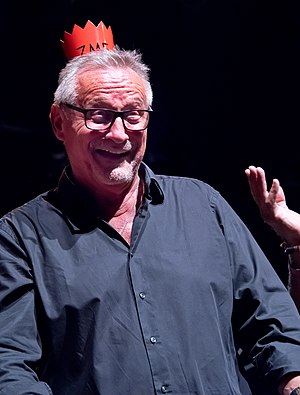
Konstantin Alexander Wecker, born on June 1, 1947, is a versatile German personality known for his roles as a Liedermacher (singer-songwriter), composer, author, and actor. He gained recognition in 1977 with the release of his record "Genug ist nicht genug" ("Enough Is Not Enough"), which featured the popular talking blues "Willy," addressing an emotional topic. Wecker's career has seen the release of over forty albums, and he has also ventured into composing music for film, theater, and children's musicals. Notably, he has been an outspoken public opponent of the Iraq War and has faced challenges due to his political stance, such as canceling a performance due to far-right pressure. Wecker has collaborated with various artists and has also showcased his acting skills in several films and TV productions. His extensive contribution to music, activism, and the arts has solidified his status as a prominent figure in the German cultural scene.
All images displayed on this page are sourced from Wikipedia or Wikimedia Commons.We use these images under their respective Creative Commons or public domain licenses. Wherever applicable, author attributions and license information are provided. If you believe an image is used incorrectly or outside its license terms, please contact us so that we can review and correct the issue.